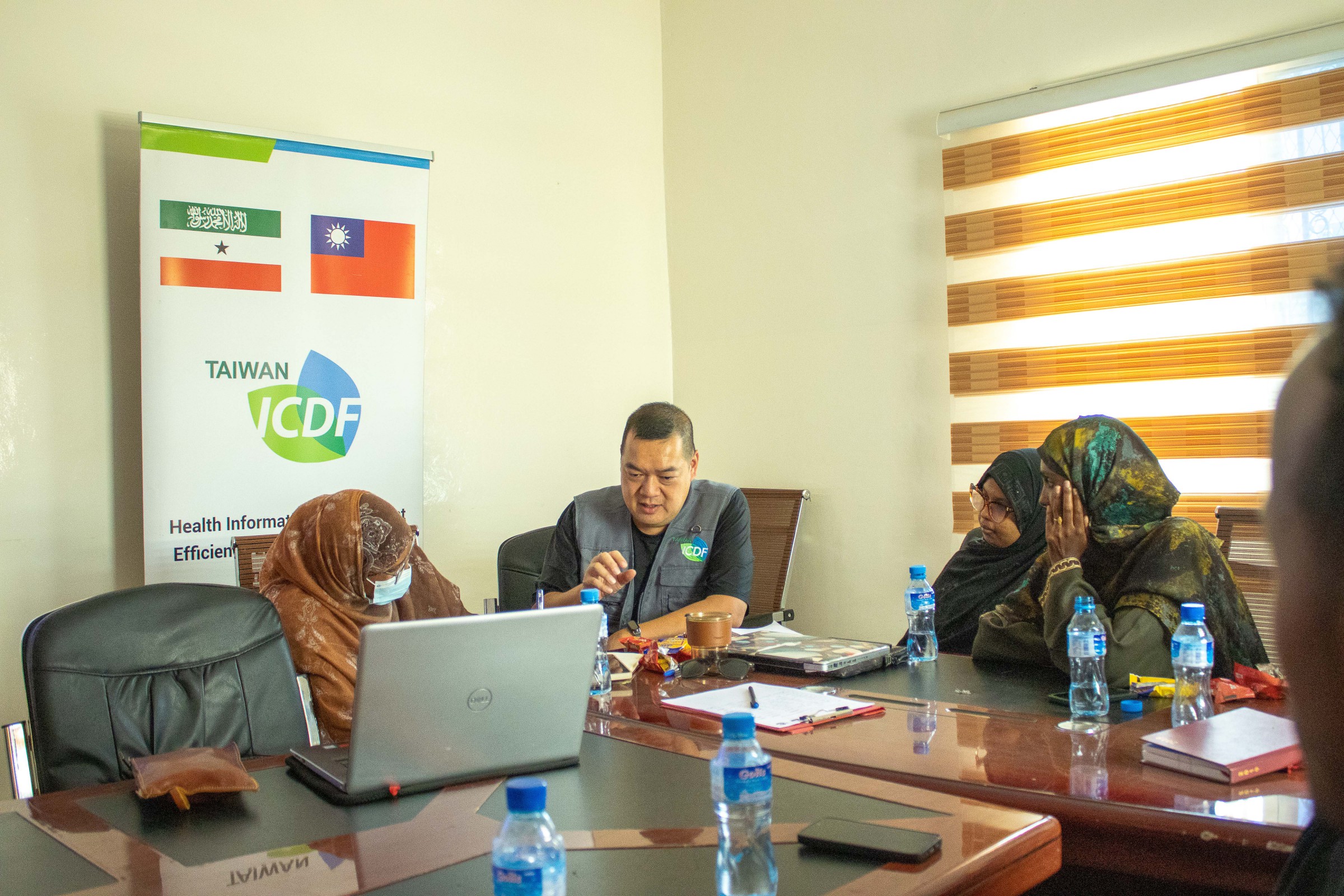
TaiwanICDF and Wharton School Collaborate on Healthcare Reform in Somaliland
The TaiwanICDF and the Wharton School of the University of Pennsylvania this week collaborated on integrating artificial intelligence (AI) into Somaliland’s medical information system. The achievement marks four-and-a-half years since the signing of the “Agreement on Technical Cooperation between the Government of the Republic of China (Taiwan) and the Government of the Republic of Somaliland” on August 17, 2020, and the dispatch of the Taiwan Technical Mission to the southern African country. Thanks to the shared efforts of that mission and experts from the Warton School, Somaliland’s AI-powered automated medical record generation system is now operational.
Somaliland’s official language is Somali. However, to align with international standards, the country mandates that medical personnel write patient records in English. Due to varying levels of English proficiency among healthcare professionals in the country, errors such as misspellings, missing punctuation, and inconsistent data entry frequently occur, resulting in incomplete records and affecting the accuracy of clinical diagnoses. To address the issue, the Taiwan Technical Mission in Somaliland, the Wharton School, and Somaliland’s Ministry of Health Development signed a cooperation agreement in December 2024. Forming part of efforts under the Health Information Management Efficiency Enhancement Project in Somaliland, the agreement sought to enhance the efficiency of the country’s medical information system through the use of AI.
TaiwanICDF project manager Mario Lin explained that the collaboration model involves the on-site development of the system by the technical team, with the Wharton School designing the AI algorithms, and Somaliland’s Ministry of Health Development coordinating hospital testing and system deployment. Additionally, the Wharton School has provided financial support for AI server connectivity and assisted in improving the network speed of Somaliland’s data centers.
Lin further highlighted that the newly launched AI function generates electronic medical records through human-machine interaction, significantly improving the efficiency of clinical diagnoses. This feature is especially beneficial for complex cases and patients requiring detailed follow-up. Local doctors who have used the system expressed their satisfaction: "The medical information system developed with Taiwan’s assistance was already highly effective, but this AI technology has further streamlined the diagnostic process, drastically reducing medical record errors and shortening the time needed for documentation. This allows us to dedicate more energy to professional medical care."
TaiwanICDF Deputy Secretary General Peifen Hsieh said that the TaiwanICDF will continue optimizing the system and other AI-enhanced functions in Somaliland’s healthcare system. Part of future plans include the development of an "AI health assistant" function, which would leverage Taiwan’s AI technology to enhance the quality of Somaliland’s medical services. This initiative aligns with foreign minister Lin Chia-Lung’s Diplomatic Allies Prosperity Project, designating smart healthcare and the health industry as a whole as key areas of focus.
- Update: 2025/03/28
- Hits:926

